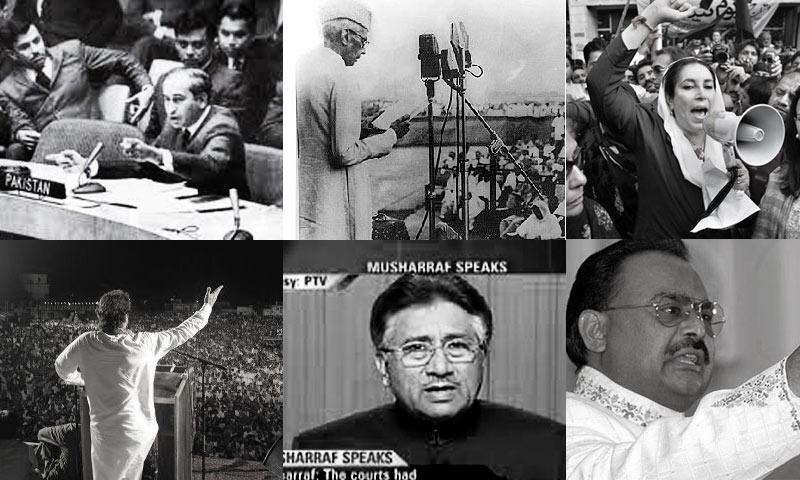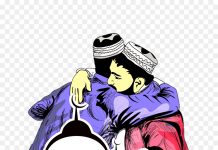Table of Contents
INTRODUCTION
In the course of Pakistan’s 73-year history, there have been several different attempts radically to change Pakistan by three civilians (one at present) and three military regimes. Yet, they all have not been able to win the nation’s hearts, and the new regime has also been seemingly failed. Every single one of them found their governments ingested by the elites. They had hoped to displace and engaged in the same patronage politics as the regimes that they had overthrown. None could find a new mass party staffed by professional politicians and ideologically committed activists rather than local feudal and urban bosses plus their followers. In this post, we shall compare the achievements of different governments of Pakistan to find out: Was there any fair leader throughout Pakistan’s history?
A Brief Look At The Different Leaders of Pakistan
General Ayyub Khan and Pervaiz Musharraf were once the military rulers from 1958 to 69 and 1999 to 2008, respectively. Both took Kamal Atta Turk as their role model, the greatest secular modernizing nationalist and founder of the Turkish Republic. General Zia ul Haq, a military ruler from 1977 to 1988, took a very different course trying to unite and develop Pakistan through enforced endurance to a stricter and more stiff form of Islam merged with Pakistani patriotism. Then there was Zulfiqar Ali Bhutto, founder of the Pakistani people’s party and Pakistan’s civilian ruler. In the 1970s, he tried to rally the Pakistani Masters behind him with a program of anti-elitist economic populism mixed with Pakistani nationalism.
Democracy in Pakistan
Pakistan’s young democracy started in 2008 when Pakistan People’s Party won the elections. In 2013, it was the first time throughout the history of Pakistan that power was transferred from one Democratic Party to another. And the same thing happened in 2018. Since the inception of Pakistan, everyone has tried to make their tenure impactful in different ways.
Indeed, except for Bhutto none tried seriously to curtail the clans. However, after a short while, Bhutto’s PPP too had ceased to be the radical party of its early years and had become dependent on the same old local clans and local patronage.
But here the questions arise: Was there any fair leader throughout the history of Pakistan? Was there any leader who was able to bear the burdens of a suffering country like Pakistan? Indeed, except Quaid e Azam( founder of Pakistan), a couple of these types of leaders might be honest and loyal to Pakistan, but with few imperfections. Following are the two most loved leaders throughout the history of Pakistan.
1. Zulfiqar Ali Bhutto (1971-77)
Zulfiqar Ali Bhutto is the most popular personality in Pakistan’s history. It is commonly said that after partition, Pakistan has seen only one leader or loyal man in the shape of Bhutto. ZA Bhutto approved his correct charismatic personality by forcing the dictatorial regime to step back from office with immobilized popular power. Many reforms took place under Bhutto’s regime, such as bureaucratic reforms, first and the second phase of land reforms, economic reforms, and Constitution(most significant achievement of his). He also developed strategies to curtail the Army. Because at that time, Army was one of the immense powers in Pakistan, and he wanted them to practice their actual job only. He also contributed to the formation of the Para Military Force against the establishment.
However, along with his many significant contributions that made Pakistan economically stable, he was also one of the people behind East Pakistan’s separation. He had made many errors. To preserve his government, he agreed to give up East Pakistan. He did not like opposition parties at all. He was accused many times of suppressing the voice of opposition leaders.
But all in all, he was a great leader in the history of Pakistan. He took many measures to fulfil the given promises and was successful to much extent. But at the same time, parochial elite class and establishment hampered him from practicing his ideas. These prestige-loving classes collaborated against Mr. Bhutto. But he thoroughly succeeded in formulating an independent foreign policy of Pakistan.
2. Pervaiz Musharraf (1999-2008)
During his years in power, Pakistan maintained consistent and profitable policies of liberalization, deregulation and privatization. Financial recovery, institutional reforms and promising administration were Pakistan’s established prerogatives. For financial recovery, the government sought a two-pronged policy of securing macro-economic strength and initiating structural reforms for self-sufficient advancement. As a result, the economy had improved at a typical rate of 7% per annum in four years. Its growth reached a record degree of 9% in 2004-2005. Growth of substantial scale manufacturing which was 3.6% during 1999-2000, documented an average boost of 11.31 % per annum from 2000-2007. Foreign Exchange reserves had passed over the US$ 16 billion marks. Per capital, revenue had improved from $526 (1999-2000) to $925 (2006-2007). GDP upswing, which was 3.9% in 1999-2000, grew at an average rate of 6% per annum during the interval from 2000-2007. Total GDP, which was approximately Rs 2,938.4 billion (1998-1999), registered a tremendous spike in 8 years and ranged between Rs 3,826 billion (1999-2000) and Rs 9,970 billion (2006-2007).
But apart from that, like everyone, Musharraf also had come across with failures. Many bad things happened in Musharraf’s tenure, the martyrdom of Akbar Bugti and Lal Masjid event, mishandling of Justice Iftikhar Chaudhry case, the proclamation of emergency, and victimization of opponents, the martyrdom of brave Benazir Bhutto and shrewdness of Asif Ali Zardari, etc. These all incidents persuaded Pervez Musharraf to tender his resignation on 18th August 2008 to avoid the impeachment process’s humiliation.
However, because of his contributions, the world started to recognize Pakistan as a religiously tolerant and financially stable country. He was the first military ruler in the history of Pakistan who did not impose Martial law. He wanted to shape the country with immense pluralism, equality, freedom and literacy.
CONCLUSION
From the above facts, it can be concluded that Musharraf was the all-time loyal leader to the country with relatively fewer errors. If it were not for Musharraf, Pakistan would have still been in the shadows of immense economic crisis, no freedom of speech and fake accusers of blasphemy. Along with that, he was a great ambassador of Pakistan. He represented Pakistan in many events. He was famous for his vehement speeches and humor.












